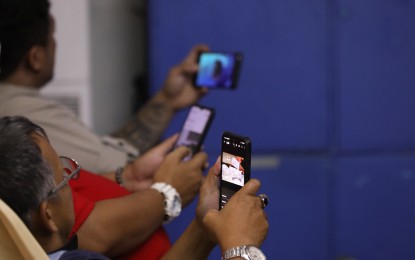
(PNA photo by Yancy Lim)
MANILA – The Philippine Chamber of Telecommunications Operators (PCTO) on Tuesday warned the public against a rise in scam messages that were sent from outside cellular networks.
In a statement, PCTO president and Globe general counsel Froilan Castelo said these messages can avoid stringent security measures such as SIM registration and network filters that block suspicious messages such as those with web links.
“This new wave of scam messages is worrisome as fraudsters have resorted to methods that do not pass through telco networks; thus, they can evade our already robust filters,” Castelo said.
These scam messages, he said, are using chat apps, Rich Communication Services (RCS) for Android users, and other web-based messaging platforms.
“Industry players and key stakeholders must work closely together to combat this trend. Let’s focus on finding ways to defeat our common enemy: scammers,” he said.
He said scammers can target Filipinos using foreign mobile numbers through these platforms.
Another method used by fraudsters is using International Mobile Subscriber Identity (IMSI) catchers or fake cell towers that can send messages to mobile users within a certain area.
“These portable devices simulate cell towers to intercept mobile communications within a particular area, allowing fraudsters to directly connect with SIMs and send them messages using imitated sender IDs, including official accounts. Called spoofing, this method also evades telco networks,” Castelo said.
He advised mobile users to stop pressing clickable links in messages and to never engage with unsolicited messages from any platforms.
“At the end of the day, the first line of defense for mobile users is themselves. Be vigilant and discerning against messages from unknown numbers, and never click on any link inside unsolicited messages. More often than not, these messages are meant to defraud you,” he said.
The PCTO is a non-stock and non-profit organization with 14 founding members to foster cooperation among telecommunication companies and other stakeholders. (PNA)
